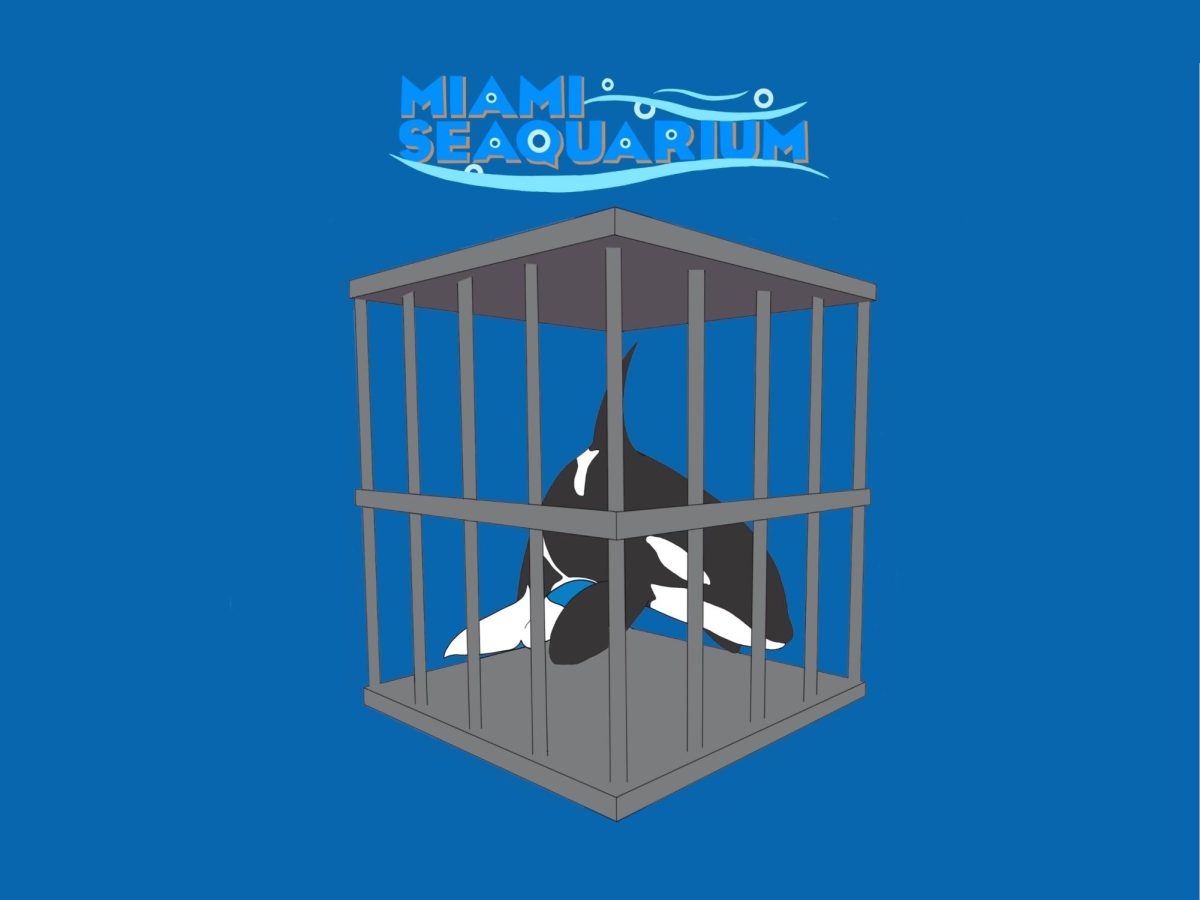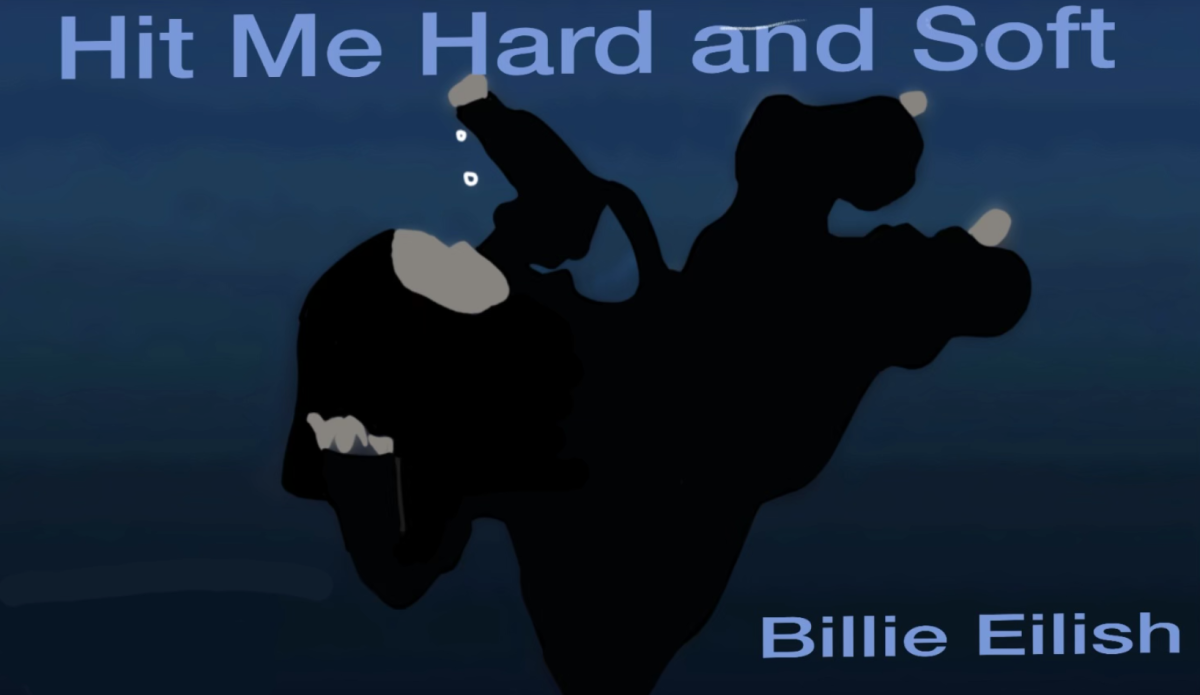Throughout Miami, residents and tourists alike stepped inside the Miami Seaquarium in hopes of astonishingly looking at the famous Lolita the orca. The sparkle in their eyes died on Aug. 18, less than five months after the Miami Seaquarium announced plans to release her back into her native ocean waters, Lolita, the oldest orca held in captivity, died due to a “renal condition”. It is undeniable that Lolita was robbed of her freedom, both physical and mental, as she was captured at the infantile age of four. Having been alone for 34 years out of the 42 she was in captivity, Lolita was taken away from the social groups cetaceans like her live in.
After years of pressure from animal rights groups like People for the Ethical Treatment of Animals, in March of this year, the Miami Seaquarium announced their plan to return the 57-year-old killer whale back to her natural environment. However, months and months passed, and the owner of the Seaquarium, the Dolphin Company, stated that the orca would be relocated sometime between October 2024 and April 2025, crushing the hopes of all the people who thought Lolita would get justice.
“I believe I had seen [Lolita] a few times when I was a child. She has been a symbol of the captivity and horrible conditions that cetaceans have been kept in for as long as she has lived. I have felt bad for her, even guilty at times, because some human did this to her and I belonged to the same species as that “person.” When I initially heard of her death, I felt a bit of sadness, but I was happy that she hopefully was out of her misery,” sophomore William Hardie said.
It is clear that the seaquarium’s inhumane and unforgivable actions caught up to them. The death of its beloved mascot brought grief and anger amongst the residents of Miami. Animals rights activists and normal citizens alike united in their rage and pain to protest outside the facility for their constant animal abuse.
“I have been following her story for a few years now. I saw the tank she was in for decades, and how her only option was to swim in circles everyday of her life, due to the size of it. She reminded me of the movie Free Willy, and it made me realize again how horrible humanity has gotten. Her death to me, symbolizes how we need to change our protocols and how we domesticate captured animals. To me, we need to change our ways and become better, firstly by changing the state our animals live in,” sophomore Jordan Rodriguez said.
Lolita’s welfare and freedom was compromised in exchange for the entertainment of Seaquarium visitors and the gain of the company itself. The physical and mental strain of being a puppet for humans during 53 years caused the development of a renal condition and ultimately the death of a much loved animal.
The root of the confinement of marine life can be traced hundreds of years back into the 1860s. In 1862, Circus mogul P.T. Barnum paid for the capture of two beluga whales in the St. Lawrence River and transported them to New York. Along with other animals later on, the belugas were “housed” in Barnum’s American Museum. Barnum’s actions of anthropocentrism would set the stage for animal abuse and captivity for years to come.
Captivity has repugnant and horrifying consequences on the physical and mental health of the animals who are expelled from their natural habitat. Nothing in cetaceans’ evolution have prepared them for a life in captivity. Such confinement inevitably results in abnormal behaviors, injury, illness, premature death, aggression and extreme mental suffering.
The unquestionably forceful trapping of orca from miles of vast oceans to ludicrously small glass boxes sets a headstone for the animals before they even enter their cage. In the wild, orca travel more than 9,400 kilometers in 42 days and can easily reach speeds of 30 miles per hour. The largest tank laughs at the natural freedom orca were born to have, only being 70m long. In the same vein, the deepest tank in the world that houses an orca is 12 meters, while the animals are known to dive to more than 400 meters.
“If only talking about sea mammals, I think that being able to provide adequate housing and exercise for such large animals is extremely difficult. It would be highly unethical to capture these animals solely for our entertainment. I think seeing videos of them or going on whale watching tours (or any tour for any animal) would be a much better option regarding their safety and well-being,” sophomore Jordan Rodriguez said.
Orca like Lolita around the world are confined to a space barely bigger than their own bodies, inciting claustrophobia and unnecessary stress. Tanks have glass and concrete walls that inhibit the animals’ natural use of sound and uses cooling pumps are heard underwater 24 hours a day, which does nothing to add to the constant strain on orca.
“I think the capacity of animals is unfair because they deserve a life besides being in tanks all they and being held for entertainment for humans. In my opinion, it is not right in any way for humans to trap animals in small and limited tanks, especially because animals have as much rights to be free like humans. They are a living being and deserve to be out having space for themselves,” sophomore Yasemin Obuz said.
Because of human’s ill-founded belief that they are superior to other animals, Lolita and others like her had to live their lives in a state of suffering and immobility. Because human’s have had the privilege to be free, they have taken it upon themselves to steal that right from animals. As animals who have evolved and learned throughout their history, it is humans’ responsibility to care for other animals. We have the resources and the power to improve animal’s lives, not end them.
Captivity is completely unnecessary. Animals can be studied and learned from in their natural states and homes, without the use of violent force and endless torturing that zoos, seaquariums and other facilities entail. It is human’s duty to look elsewhere, to the endless fountain that is Internet or even animal tours, to entertain themselves with the beauty of animals. Until captivity ends, the humanity of our race will continue to rot and disappear.








